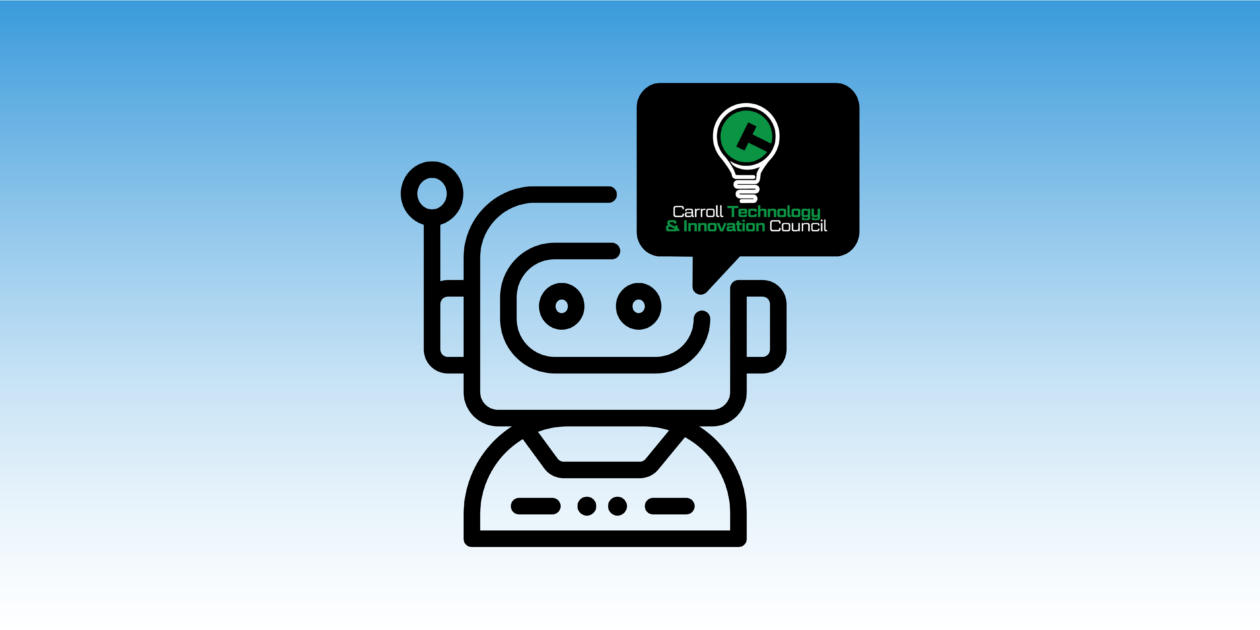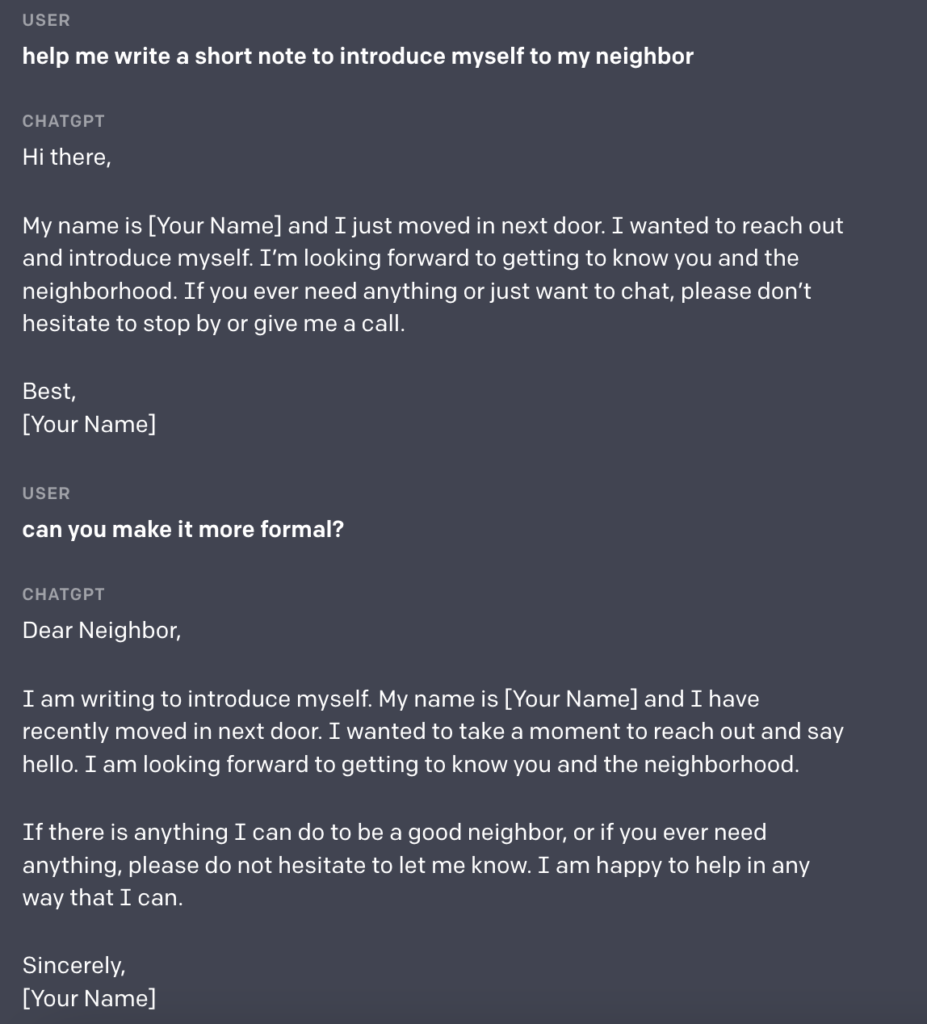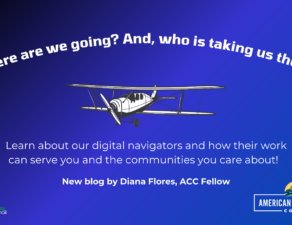
In its own words: Welcome to our blog about ChatGPT, the revolutionary chatbot that uses advanced natural language processing technology to understand and respond to user inputs. ChatGPT is so advanced, it’s almost like it has a sense of humor! (Well, almost.)
I asked ChatGPT to introduce this blog for me. And although it’s not quite as funny as I am (right, guys?), it certainly does the trick.
ChatGPT has come on the scene as a language model trained to deliver human-like responses and conversations. Being one of the first, anyone can access it on a friendly web-interface and give it a try. Becoming a sort of friend in its own right, variations of ChatGPT are becoming remarkably capable of delivering coherent, digestible information.
Not only can they provide facts, but they can also create business plans, paper topic ideas, and even original humor. Users are having a blast asking the artificial intelligence (AI) system to create writings using peanut butter and VCR humor and in the style of a man going on tangents about the pumpkins he grew – yes, seriously.
Users can ask them questions like we used to ask a Magic 8-Ball, although these answers are coherent prose about black holes and egg incubation rather than “it is certain” and “decidedly so” – although answers might intersect at existential questions. Users can also clarify their request to achieve more applicable and precise results, like in this sample from the Open AI website.
Its creators and users are also finding more serious applications, such as spotting and fixing errors in code and answering open-ended analytical questions, the types that appear on school assignments and examinations.
Some academic entitles worry about the potential for plagiarism, given the ease of use. Students could, potentially, rely on the AI writing creations for creating their assignments. This will likely be “field tested” by students, but, as this temptation is recognized and perhaps submitted to, it is also an opportunity for educators to rely on other techniques for evaluations.
“AI platforms like ChatGPT are prompting educators to re-evaluate traditional methods of assessment and instruction- as an instructional designer I’m excited by this opportunity to promote student-centered alternatives,” said Alissa Harrington, Senior Instructional Design Specialist at McDaniel College. “Ultimately, it’s important for teachers to have conversations with students about AI platforms like ChatGPT and leverage the technology to create learning opportunities around misinformation and unbiased content.”
Although chatbots seem to operate with discernible confidence, they are not always correct.
Cade Metz of the New York Times reported “But they do not always tell the truth. Sometimes they can even fail at simple arithmetic. They blend fact with fiction. And as they continue to improve, people could use them to generate and spread untruths.”
This ability to take what they have learned and shape into something new is what makes them compelling storytellers, already entertaining millions of users. This willingness to be inaccurate is also what makes them likely not the best fit to author a research or work assignment on your behalf – creators remind users that the creation is a research project itself.
As people test ChatGPT, the system asked them to rate its responses. Through reinforcement learning, ChatGPT uses the ratings to define its functions and even gain the perspective – and maturity 😉 – to admit when it’s wrong to the user.
Fixing the issue of untruths and incorrect answers all at once is a challenge as there is no source of truth given to ChatGPT during the reinforcement learning (RL) training and it assumes intentions of ambiguous questions, rather than getting clarity – we know what happens when you assume, you make an…. you know the rest.
Like us navigating the applications of AI, ChatGPT will continue to experience and intake feedback to better understand its contributions. Until we know for sure, we can certainly enjoy its humorous contributions.
Try ChatGPT for yourself!
Have a comment or experience with ChatGPT? Want to learn more about Artificial Intelligence or another topic? Email me at molly@carrolltechcouncil.org and let’s continue the conversation.







